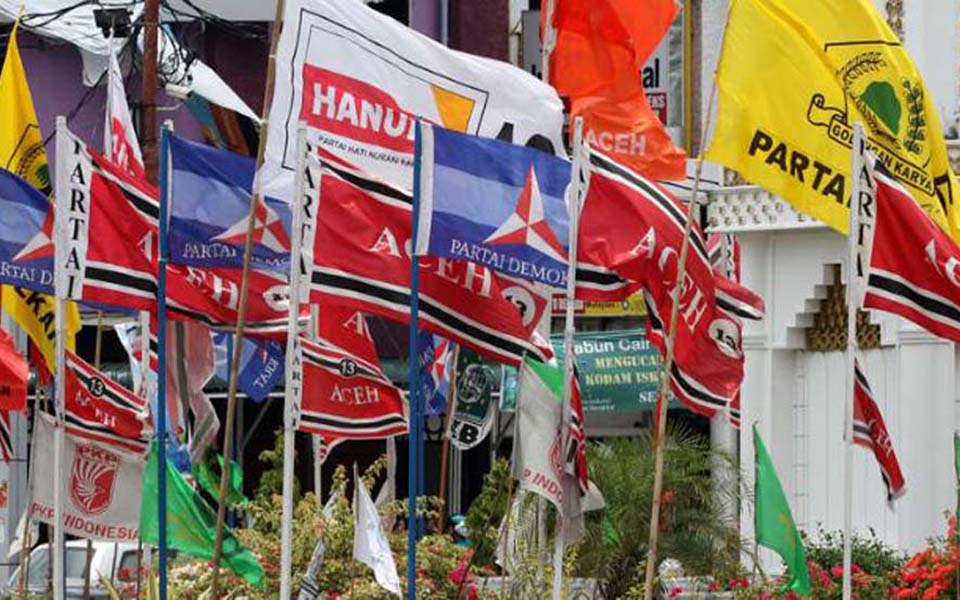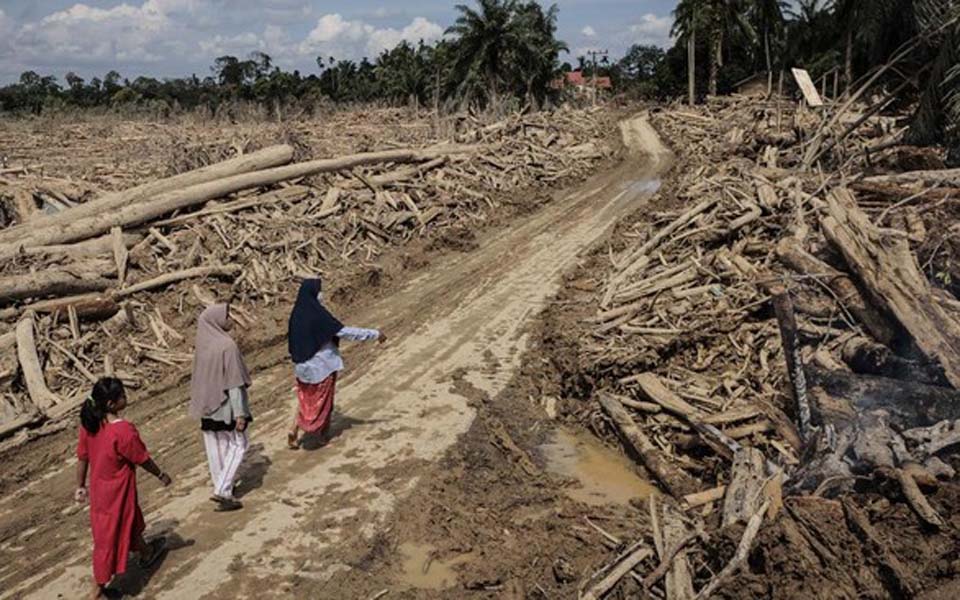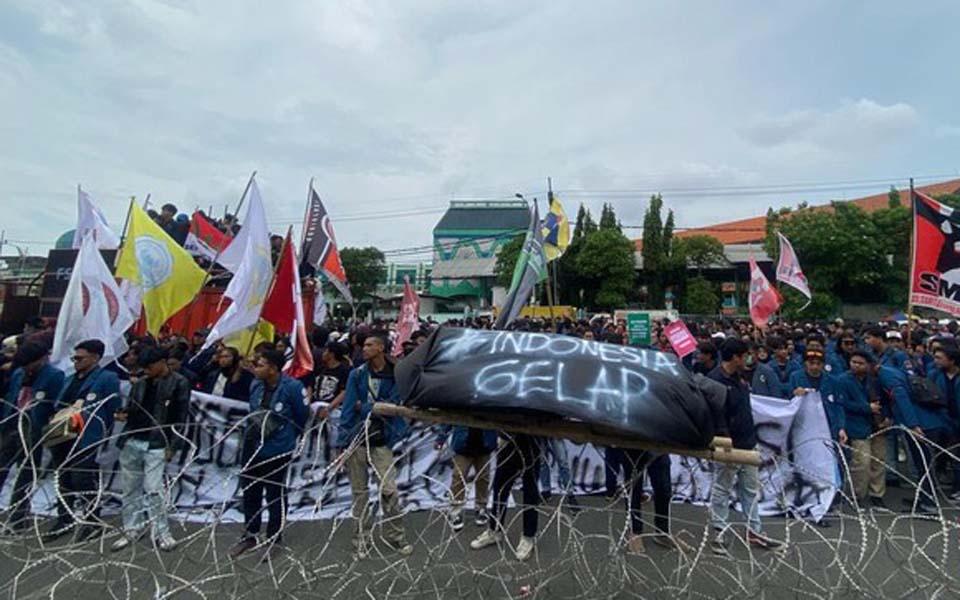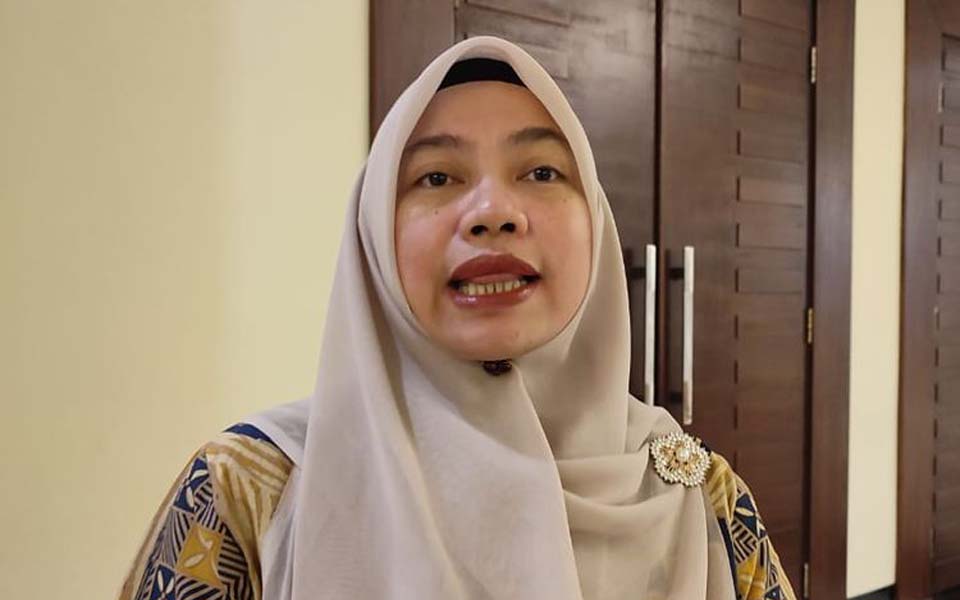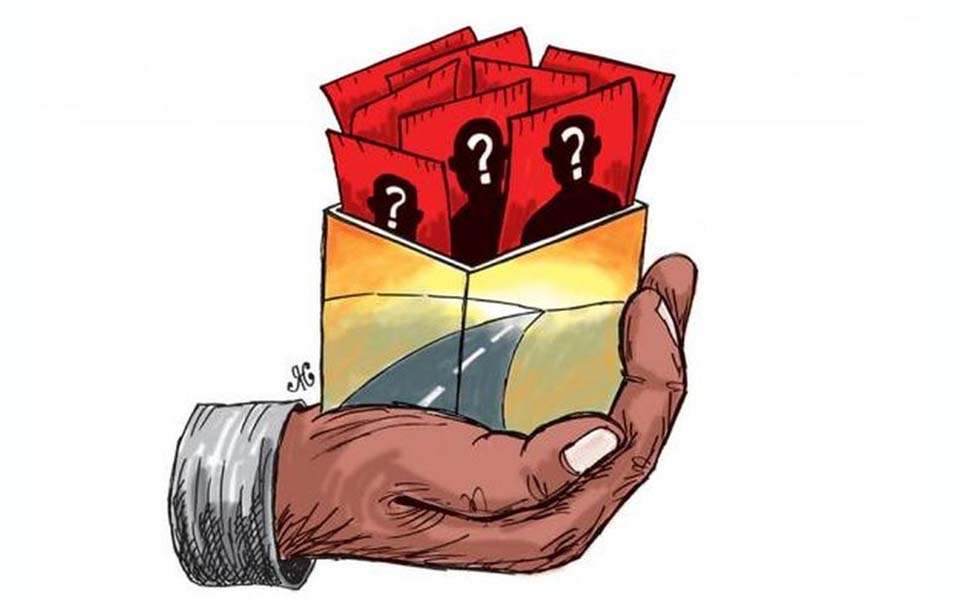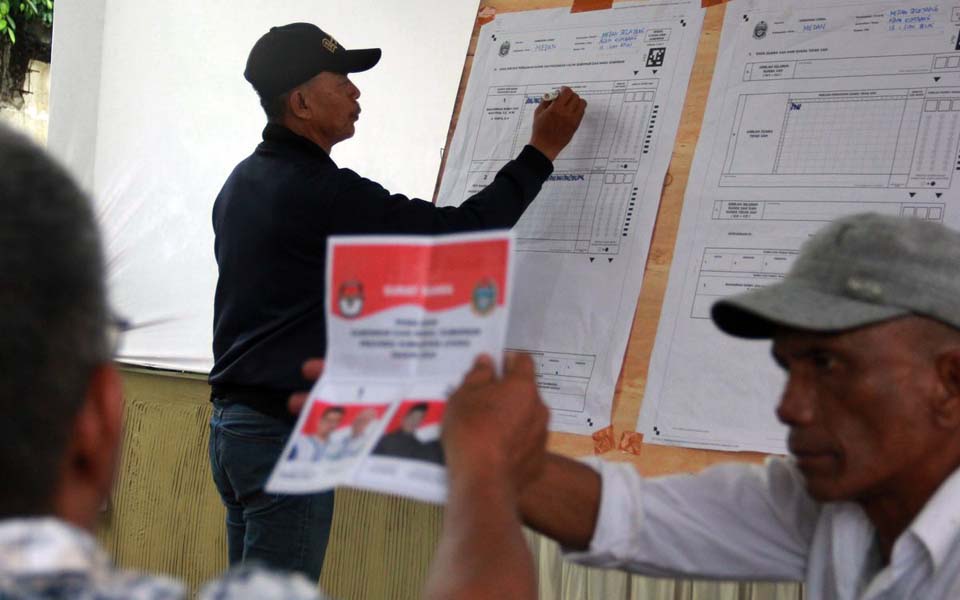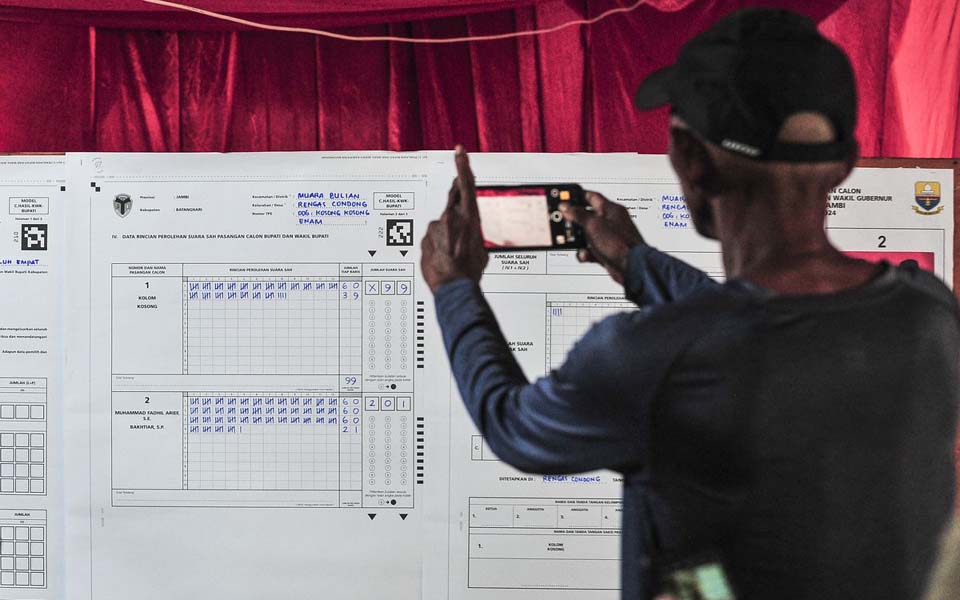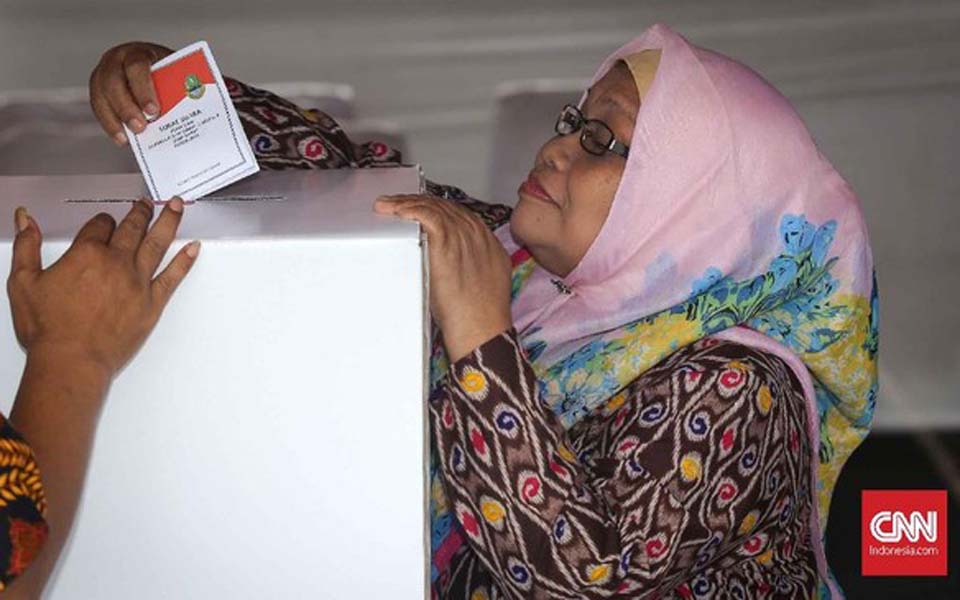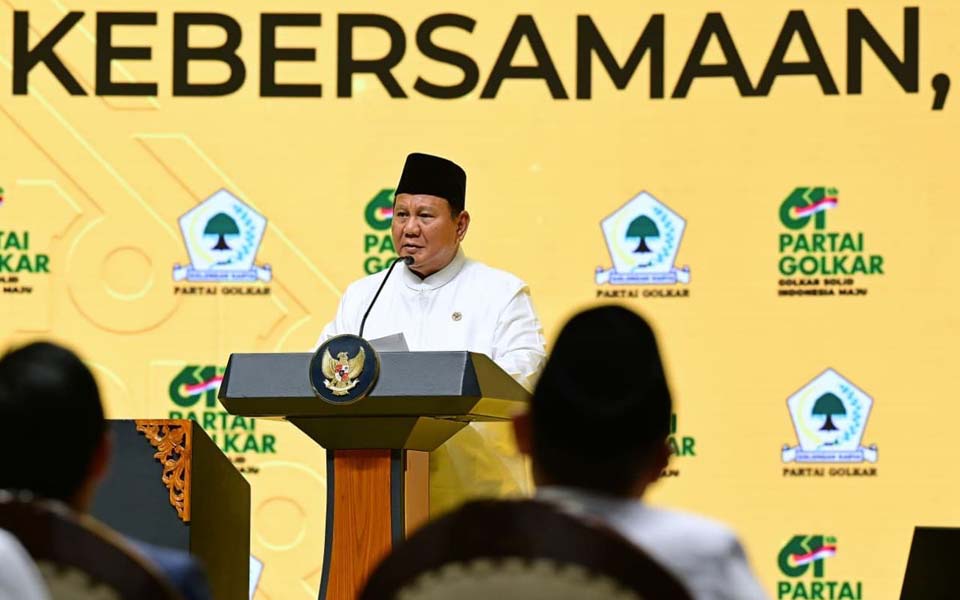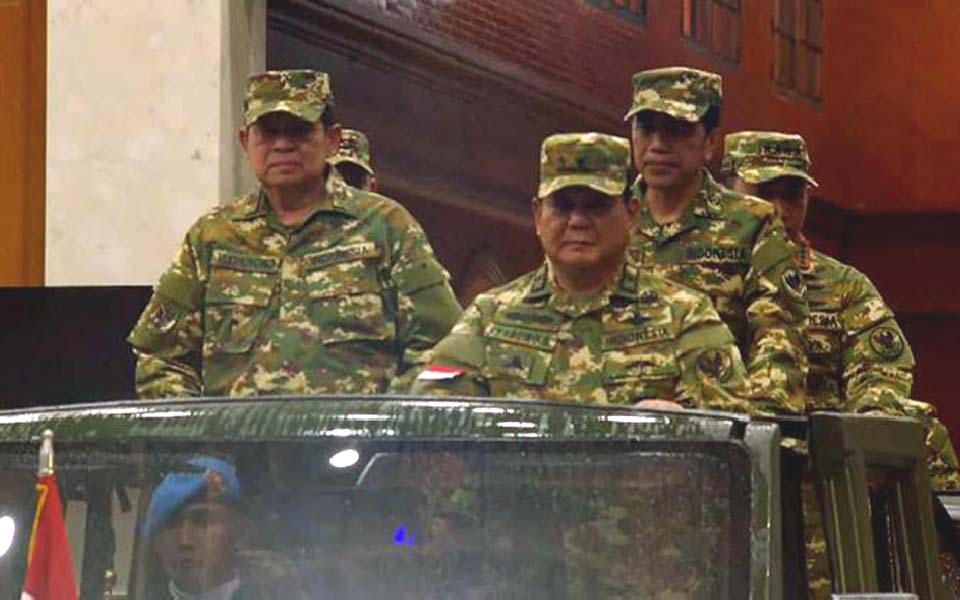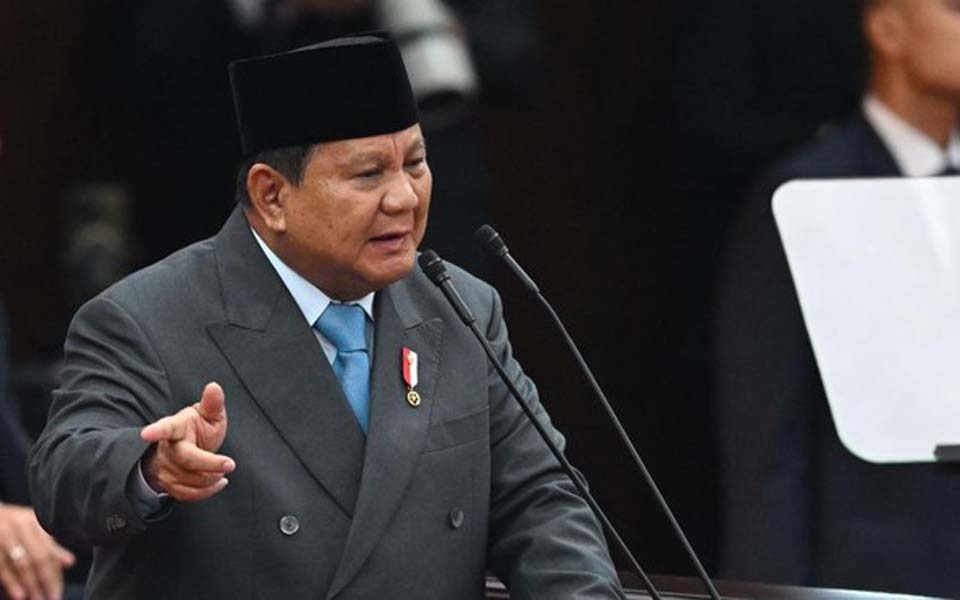Suwardiman – In welcoming the 2009 general elections, the public has placed its hopes in improvements to their economic and social livelihoods. In the shadows of the political arena however, the disappointing progress and performance of various state institutions has tended made the public pessimistic.
The public’s level of confidence that there will be improvements to the economic situation appears to be quite high. This level of confidence may have been stimulated by popular policies recently enacted by the government such as the reduction in the price of fuel.
Although the drop in the price of fuel has not automatically flowed on to a reduction in the price of basic commodities and lower public transport fares, the “atmosphere” brought with it appears to have encouraged the public’s level of optimism. This was reflected by the majority of respondents that stated they were positive that there would be improvements in household income and the capacity to purchase basic goods in 2009.
The public’s optimistic attitude appears to be at odds with a number of analysts and economic predictions that say Indonesia’s economic situation will not improve this year.
Conversely, the possibility of the economic situation worsening is very high as a consequence of global influences. It is quite possible that public’s hope of improvements in the economic situation will be in conflict with optimizing the government’s work in 2009.
There is concern that the focus of all political institutions – particularly in the first half of this year – will largely be directed at the grand political celebration titled the general elections. Never mind the realisation that major weakness in the economic sector will translate into the problem of limited job opportunities.
Although increases in the price of basic goods can be controlled by the government, the threat of dismissals as a consequence of a slump in the export market is no less dangerous. As many as 68.4 percent of respondents netted in this survey are pessimistic that there will be improvements in the chances of finding work in 2009.
In general terms, although 2009 is the “year of politics” because of the clamor of the political contest in the lead up to the elections, the majority of the public (54.64 percent) are of the view that the most important thing for the government to be working on remains economic stability and employment opportunities. This correlates with the problem of social welfare as the issue that is seen by the public as the most important thing for the government to address.
Political parties
In 2009, the issue that will dominant the colour of politics will be the legislative and presidential elections. In the lead up to this political festival, the political parties and the House of Representatives (DPR) have been greeted with a negative image in the eyes of the public.
This pessimistic note with regard to the performance of these two institutions is also quite strong this year. The public has the lowest level of confidence in the performance of the political parties and the DPR compared with its confidence in other state institutions.
In a survey carried out last week of 862 telephone owners in Indonesia’s 10 largest cities, more than half of respondents (53.8 percent) said that the political parties’ image was bad. Those who believed the opposite meanwhile was only 38.3 percent.
The political parties will become the principle stars in the political drama this year. The climax being on April 5 when voting will take place. The “existence” of the political parties will be demonstrated by the number of seats they take in the parliament when the results of the election are announced.
The political parties however will indeed have to work hard to overcome their poor image in the eyes of the public.
Preparations in the lead up to this year’s elections have already been apparent over the last few months, including among other things by intense campaigns by political parties that will take part in the elections and the figures who will be contesting them.
Almost all of the political parties have aggressively tried to reach out to and introduce themselves to the public though campaigns in the mass media and in every space in the public domain.
In the next few months it is certain that every single city will be full of the varied colours and identities of the political parties. Posters, banners, stickers, billboard full of jargon, party symbols and the “rosy” faces of candidate leaders will cover every corner of the cities. Festive and chaotic.
But in fact, not all state institutions are seen negatively. The Corruption Eradication Commission (KPK) for example, which has exposed a number of high level corruption cases recently, has earned the highest level of public appreciation. Institutions such as the Indonesian military, the police, the administration and cabinet follow with an improving appreciation by the public.
The KPK’s positive image has been built, among other things, on its sustained work in exposing cases of corruption. In 2008 alone the KPK uncovered 86 cases of corruption, 34 of which resulted in sentences with 52 others still in process.
Performance of the DPR
The public’s negative assessment of the DPR is rooted in disappointment with the performance of the people’s representatives who they voted for in the previous elections.
The majority of respondents (68.6 percent) in this survey stated that that the performance of the legislators that they voted for in the 2004 elections are still far from what they had hoped for. Only one in four respondents stated that lawmakers had fulfilled their expectations.
The public’s disappointment could be a consequence of the reality of the DPR’s performance over the 2004-2009 period. In the legislative area for example, a lack of consistency on the part of the DPR has been apparent in terms of meeting the National Legislation Program (Prolegnas).
In 2005, out 55 priority draft laws, only 14 were finished. In the following year, out of 44 priority draft laws, 39 were completed. In 2007, the DPR exceeded the target of 32 draft laws by completing 40, although six of these were only laws related to the administrative decentralization process. In 2008 meanwhile, the DPR also “pursued its rental fee” by completing 64 draft laws out of a target of 31.
Unfortunately, out of the many draft laws that were completed and approved by the DPR, the majority were not initiated by the DPR. Not to mention the poor quality of the legislation produced as reflected by the many laws that were later submitted for to the Constitutional Court for judicial review. At least 154 laws have been brought before the Constitutional Court since 2003.
Legal cases involving members of the DPR or the Regional House of Representatives (DPRD), many of which have colored reports in the mass media and the television over the last year, have further damaged the house’s image. Ranging from corruption, drug use and morality related cases – such as the circulation of an immoral video involving a legislative member – these cases have tarnished this term of the people’s representatives in office.
Doubts
Among the other state institutions, the political parties and the DPR are the institutions that the public is most doubtful will undergo any improvements this year. Improvements in the performance of these two pillars of democracy will determine the political face of the state for the next five years. This will of course been in concert with meeting the public’s hopes in the economic and social welfare sectors. (Kompas Research and Development Division)
[Translated by James Balowski. The original title of the report was ‘Tracing a sense of hope in 2009’ – Survey]





